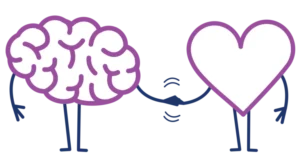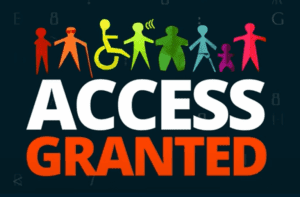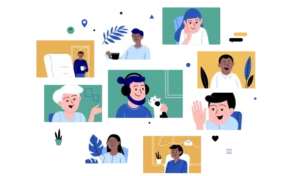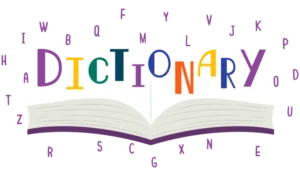When you think about jobs for people who are blind or have low vision, the first thing that might come to mind is sitting behind a computer. And while there are many opportunities in tech and office work, not everyone wants their day to be defined by a desk. Maybe you’re looking for something more hands-on, more active, or more centered on human connection. And in that case, you’re in luck. If you’re blind or visually impaired, there are plenty of careers that fit your strengths and interests.
Choose a Career Based on Your Strengths
Choosing a career when you’re blind or low vision may feel daunting, but remember: most jobs are achievable with the right tools and adaptations. The key is to look for roles that connect with your strengths and values.
- Start with what you enjoy. If you can do something as a hobby, can you also do it as a job?
- Focus on human connection. Some of the most fulfilling careers are rooted in empathy, communication, and building relationships.
- Invest in training. Sure, it may feel harder to get started, but with proper training, you can do much of what anyone else can do.
- Know your worth. Your disability does not limit your potential. Advocate for yourself, and don’t underestimate the unique skills and perspectives you bring.
Here are ten realistic and rewarding careers that don’t tie you to a computer all day:
1. Massage Therapist
- What the job is: Massage therapists use touch to relieve pain, reduce stress, and promote relaxation.
- What the job does: They work directly with clients, performing massage techniques that improve circulation, release tension, and support overall wellness.
- Qualities and strengths: A strong sense of touch, empathy, and good communication skills are essential. The ability to create a calm, professional environment also makes a big difference.
- Training required: Massage therapists typically complete a massage therapy program and pass a licensing exam (requirements vary by state).
2. Vision Rehabilitation Therapist (VRT)
- What the job is: VRTs teach people with sight loss how to manage everyday tasks independently.
- What the job does: They instruct clients in skills like cooking, handling money, using adaptive tools, and navigating daily life with vision loss.
- Qualities and strengths: Creativity, patience, and strong problem-solving skills are key. Empathy and the ability to break tasks into manageable steps are critical.
- Training required: A degree or certification in vision rehabilitation therapy, often with supervised fieldwork, is required.
3. Orientation & Mobility (O&M) Specialist
- What the job is: O&M specialists teach safe travel and navigation for people who are blind or visually impaired.
- What the job does: They provide training in white cane use, street crossings, public transit navigation, and spatial awareness.
- Qualities and strengths: Confidence, patience, communication skills, and experience with vision loss are valuable. Physical fitness and adaptability are also important.
- Training required: Certification through an O&M training program and supervised practical experience is necessary.
4. Teacher
- What the job is: Teachers educate students, develop lesson plans, and support learning in the classroom.
- What the job does: They present lessons, facilitate discussions, assess student progress, and create an inclusive learning environment.
- Qualities and strengths: Communication, creativity, organization, and adaptability are key. Strong interpersonal skills help connect with students.
- Training required: A degree in education and state teaching certification are typically required. Adaptive tools and accessible teaching methods are used by visually impaired educators.
5. Social Worker
- What the job is: Social workers support individuals and families through life challenges, advocating for resources and services.
- What the job does: They assess needs, provide counseling, connect clients with housing, healthcare, or disability services, and advocate for systemic support.
- Qualities and strengths: Empathy, active listening, problem-solving, and advocacy skills are critical. Patience and resilience help navigate complex situations.
- Training required: A degree in social work (BSW or MSW) and, in many cases, licensure as a social worker is required.
6. Psychologist
- What the job is: Psychologists help people understand emotions, behaviors, and thought patterns.
- What the job does: They conduct therapy sessions, assessments, and research to support mental health and personal growth.
- Qualities and strengths: Insight, empathy, analytical thinking, and strong communication skills are essential. Observational skills and the ability to build trust matter more than vision.
- Training required: A master’s or doctoral degree in psychology and state licensure to practice are required.
7. Customer Service Representative
- What the job is: Customer service representatives assist people with questions, concerns, or troubleshooting.
- What the job does: They interact with clients via phone, email, or in person to provide support and resolve issues efficiently.
- Qualities and strengths: Patience, clear communication, problem-solving, and empathy are essential. Adaptability and strong listening skills help resolve diverse client needs.
- Training required: Many roles provide on-the-job training. Accessibility tools, scripts, and adaptive technologies can make the role accessible to visually impaired professionals.
8. Hospitality Worker
- What the job is: Hospitality workers support guests in restaurants, hotels, and events. Roles include server, host, concierge, or event staff.
- What the job does: They greet and assist guests, take orders, provide information, and ensure a welcoming environment.
- Qualities and strengths: Communication, patience, adaptability, and problem-solving in fast-paced, social settings are key. Strong customer service skills are essential.
- Training required: On-the-job training is common, though certifications in food safety, hospitality management, or customer service may be helpful. Adaptive strategies can make tasks more accessible.
9. Private Chef
- What the job is: Private chefs prepare meals in personal or professional kitchens, often for individuals, families, or small events.
- What the job does: They plan menus, prepare ingredients, cook meals, and maintain kitchen organization.
- Qualities and strengths: Strong senses of taste, smell, and touch are valuable. Organization, time management, and creativity help maintain a smooth workflow.
- Training required: Culinary school or formal cooking programs can help, but many chefs learn through apprenticeships or on-the-job experience. Adaptive kitchen tools and consistent organization increase accessibility.
10. Entrepreneur
- What the job is: Entrepreneurs create and manage their own businesses, from products to services.
- What the job does: They design business strategies, manage operations, market offerings, and interact with clients or customers.
- Qualities and strengths: Independence, creativity, problem-solving, resilience, and communication skills are essential. Flexibility and resourcefulness allow adaptation to challenges.
- Training required: Business courses, mentorship, and networking programs can provide guidance. Accessibility tools and resources help manage operations efficiently.
Building a Fulfilling Career
You’re not confined to a desk job just because you’re visually impaired. Whether you’re drawn to helping others through therapy, guiding independence as an O&M specialist, teaching, supporting communities as a social worker, or building your own business as an entrepreneur,—your career can reflect your passions, your strengths, and your worth. The path might take extra steps, but it’s your path and it’s absolutely possible.






